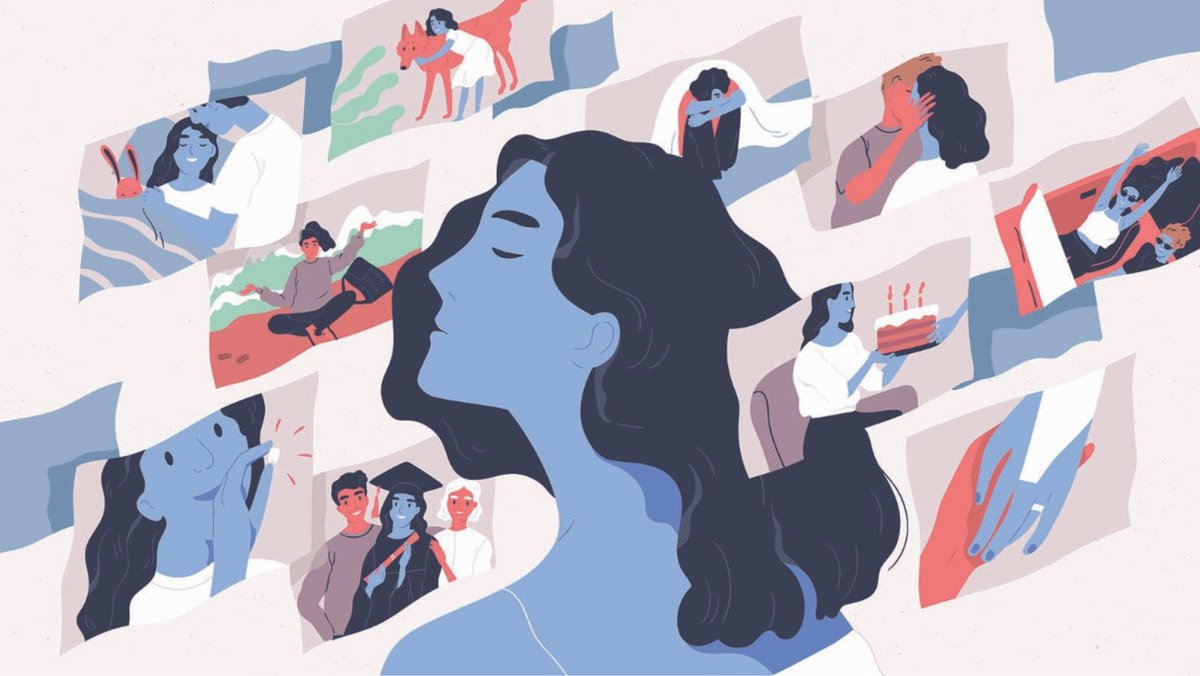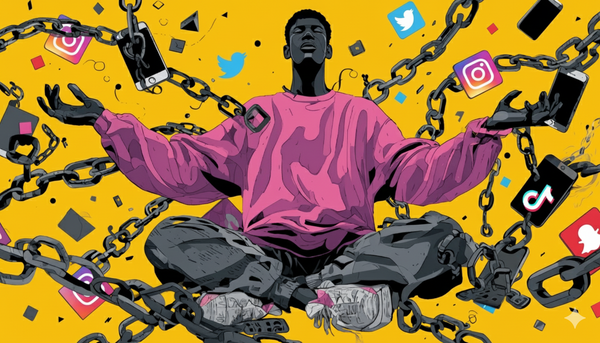What are we aiming for: a happy life or a meaningful one?

Someone asked me recently: what's better, a happy life or a meaningful one? While I chewed over the question and blurted out "meaningful, definitely meaningful", I wondered if this was a question others have asked themselves.
Turns out, philosophers, researchers and spiritual leaders love to talk about this, taking wildly different approaches to answer the question. Philosophers pull themselves apart at the seams with the meaning of the question itself, while spiritual leaders connect it to a higher cause. Researchers, however, have dived into this question, and have some pretty thoughtful feelings about it.
TL:DR: While there may be more to life than happiness, there may also be more to “happiness” than pleasure alone.
What's the difference? 🤷
“A happy life and a meaningful life have some differences,” says Roy Baumeister, a Francis Eppes Professor of Psychology at Florida State University.
In his research, Baumeister and his colleagues looked for correlations happiness, meaning, and various other aspects of people's lives: behaviour, moods, relationships, health, stress levels, work lives, creative pursuits, and more.
Their findings suggest that meaning has little to do with being healthy, has enough money, or feels comfortable in life. Happiness, meanwhile, does. Eppes and his team identified 5 key differences.
- Health, wealth, and ease in life were all related to happiness, but not meaning.
- Happiness involves being focused on the present, whereas meaningfulness involves thinking more about the past, present, and future.
- Meaningfulness comes from giving to other people; happiness comes from what they give to you.
- Meaningful lives involve stress and challenges but lower happiness.
- Self-expression is important to meaning but not happiness, caring about personal and cultural identity were linked to a meaningful life but not a happy one.
While most agree on a rough idea of 'meaning', lots of researchers struggle to come up with a concrete idea what happiness really is. Sure, there's an agreement that it's fleeting and not constant, but there doesn't seem to be a lot of clarity over what the hell happiness is, anyway.
Happy sad 🥲
Psychologist Maritn Seligman says happiness is more subtle and nuanced than that giddy feeling you get when you receive a gift or win a prize. He says there are three types of happiness - a Pleasant Life, an Engaged Life, and a Meaningful Life, which is basically him saying that meaning and happiness are less adversaries and more best chums.
A Pleasant life is about having as many pleasures as possible in life, and having the skills to amplify your pleasures.
The Good Life is about recrafting your work, love, friendship, leisure, and parenting to use your strengths and spend more time in your values to have more 'flow' in life - that feeling where you're nailing something, like a run or cooking.
The Meaningful Life is about using your strengths in the service of something that is bigger than you are.
But psychologists and researchers, in their love of being contrary, say there moments of happiness when we're scared, fearful, or just plain sad.
Scary happy 🎃
In their paper “Glad to be Sad, and Other Examples of Benign Masochism,” Paul Rozin and his colleagues at the University of Pennsylvania found that 29 activities, such as watching scary movies, staring at sad paintings, listening to sad music, eating spicy food, listening to disgusting jokes, going on thrill rides, having a painful massage, and being physically exhausted—produced pleasure in a substantial number of individuals.
All of which suggests that the route to happiness isn't always so straightforward. Instead, it's more about moments of emotional intensity that can then be used to create meaning, and or happiness.
One of my most 'meaningful' moments when I was a child was when my brother, my sister and I got lost on Bournemouth pier while my dad was buying fish and chips.
It was stressful, not only through fear of being lost but the bollocking that happened soon afterwards. It was also an intense bonding experience: we sat in silence on the way back to the caravan we rented (ah, the 80s) before bursting into laughter while we ate our now very soggy chips.
The summary here is, when we look back on our lives and try to decide whether it was a 'good' life, we're more likely to focus on the intense moments of emotion (be they good or bad) rather than all those moments where nothing seemed to bother us. Chew on that.
Ok, where can I learn more? 📚
- More detail on Benign Masochism - why we seek out sad things to make us happy.
- Michael Steger has spent a decade thinking about meaningful lives - and he has a TED talk all about it.
- Wabi-Sabi - I've heard a lot about this book. It's a very Japanese take on the art of having an imperfect life.





